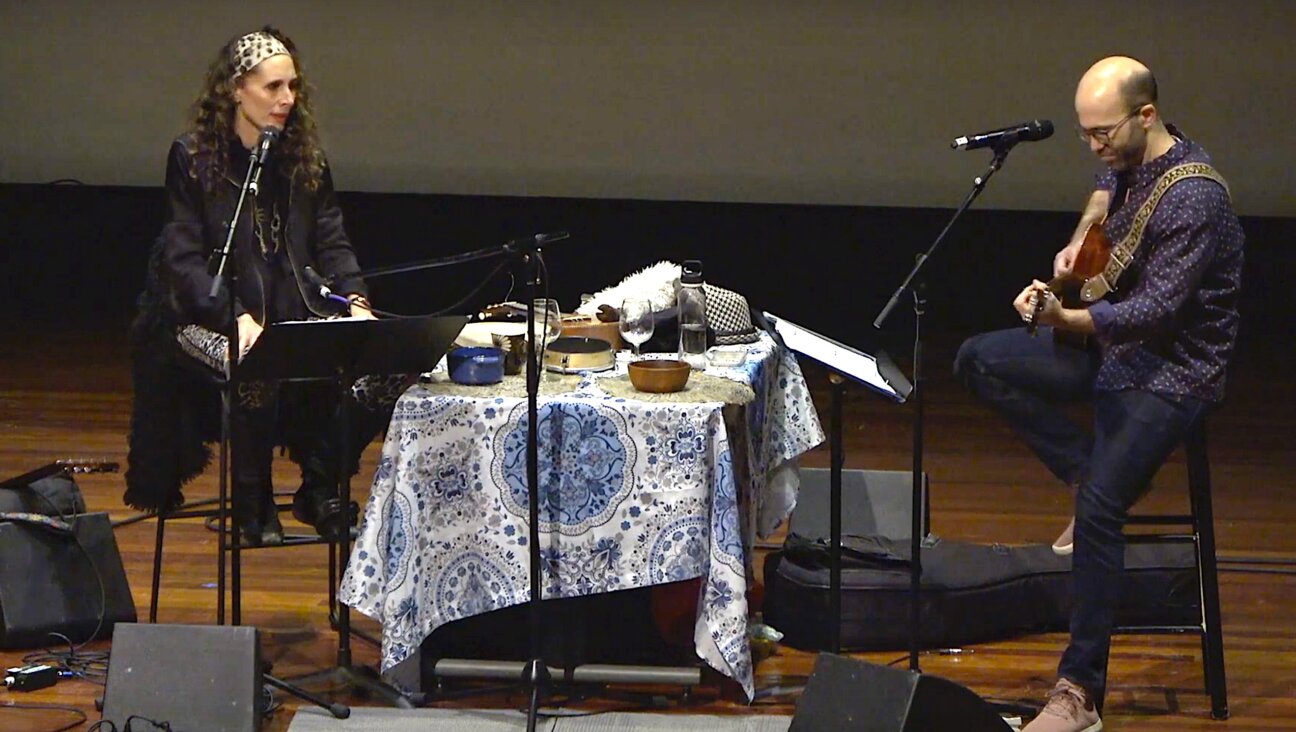The time a Christian woman turned to the Bintel Brief for advice
Her question and the editor’s response reveal much about the emotional and sexual lives of women in the 1940s.

Photo by publicdomainpictures
On Feb. 18, 1940, the Forverts advice column “A Bintel Brief” (“A Bundle of Letters”) printed an unexpected request for guidance. The writer was a young Christian woman who turned to the Forverts through a close friend, a Jewish woman who faithfully read the Yiddish-language advice column.
The author, who of course wrote her letter in English, signed herself as “The Desperate Christian Woman.” She told a dramatic story about a crisis with her husband (who was also Christian) which almost drove her to suicide. Her tale and the editor’s answer shed light on aspects of the emotional and sexual life of women — and men — in New York five months after the outbreak of World War II.
According to “Desperate,” who was 28 years old, her marriage eight years earlier was a love-match on both sides. She acknowledged frankly that she was very attractive and chose her husband among several competing suitors. He was a successful businessman and earned a good living. They had a fine house, two young children and a governess. Until a few months earlier, their life together had been — or seemed to be — very happy. But suddenly she received an anonymous letter and then a second, a third and a fourth. The letter-writer warned her that her husband was having an affair with another woman.
After four letters, which mentioned specific dates when her husband had “stayed late at the office,” the young wife began shadowing her husband. She didn’t share any details about how or where she spied on him — only that she proved beyond any doubt that he was having an affair. Worst of all, the other woman was older than him and, as she put it, “ugly.”
“Desperate” stopped speaking to her husband, yet chose not to confront him about his affair. Instead, she punished him with silence. She considered leaving him and taking the children with her, but decided to wait. Outwardly, when they socialized with their friends, their life seemed normal. Until a few days before she wrote to the “Bintel Brief,” the situation continued unchanged.
Then came a new crisis: A young man, a colleague of her husband’s, visited their house — apparently by chance — when the wife was home alone. He offered to take her to the movies. Angry and humiliated over her husband’s betrayal, she said yes. Afterward they went to a restaurant, then to a cabaret. She returned home very late and, in her own words, “not as innocent as when I left the house.”
During the night she was overcome with shame and regret, and almost poisoned herself by drinking iodine. At the last moment she thought better of it and smashed the glass bottle on the bathroom floor. Her husband came in, and almost fainted at the sight. He carried her to bed and left the house; where he went was not clear. As far as we can tell, the couple didn’t see each other again. Early in the morning, the wife ran to her Jewish friend, who advised her to write to the Bintel Brief. Apparently, “Desperate” stayed at her friend’s house for several days, awaiting a response from the editor, apparently leaving her children in care of the governess.
Fortunately, the editor responded. He expressed sympathy for her situation and criticized her husband’s selfish and cruel behavior. But he argued that the husband surely loved his beautiful young wife and very likely had no real feelings for the other woman who, after all, was older than him and “unattractive.” At the same time, the editor expressed disapproval about the fact that the wife had committed the same mistake as her husband, having had a sexual encounter with a man whom she admitted meant nothing to her. He advised her to return home and tell her husband everything. He was sure they would forgive each other and the husband would forget the other woman. At the end of the letter the editor quoted Jesus, who had said “sin no more” — advice which he doubtless hoped the Christian couple would follow.
Several interesting themes emerge from the letter and the editor’s response. First is the fact that the “Bintel Brief,” 34 years after its introduction in the Forverts, still commanded respect from readers and their friends. Second is the deep friendship between these two women, a Christian and a Jew. The letter doesn’t mention how or when they met and became so close. The Christian woman had a wealthy husband and didn’t need to work, so she and the Jewish woman presumably didn’t meet as colleagues, unless they worked together before the letter-writer had married. We get the impression that the two friends are around the same age, but that their social and cultural circumstances are very different. Nonetheless, their attachment is genuine: the writer says that her Jewish friend was the only one she confided in about her marital crisis. She didn’t even tell her own mother.
Another surprise is that the editor doesn’t blame the wife any more than her husband for being unfaithful. In his eyes, both of them sinned equally: the wife perhaps a little less because her husband had provoked her. What’s striking about the editor’s attitude is that for thousands of years, across all societies, the punishment for a woman in this situation was much harsher than for her husband; concerns about a wife’s chastity have often bordered on the obsessive. Even when both husband and wife committed adultery, the husband often had the right to divorce her. But in the case of this editor, there is no sign of this attitude. Even in New York, 1940 seems like an early date for such an enlightened viewpoint.
Nonetheless, it apparently didn’t occur either to the editor or to the letter-writer that the husband might have been genuinely in love with the other woman. Because she was older than he and, as Desperate claims, not conventionally pretty, they both believed that his dalliance with her couldn’t last. But couldn’t the opposite be true? He apparently enjoyed spending time with this woman, which suggests that she had other qualities — like intelligence and kindness — that appealed to him. Even the editor implies that if the husband did indeed have genuine feelings for the other woman (which he admitted he found hard to believe), the fate of the young wife might not be a happy one.
We have no way of knowing what actually became of this marriage. But the story does give us a glimpse into the fascinating tension of that era between traditional and more contemporary notions of a woman’s value. The editor was clearly ahead of his time in that he didn’t dismiss an unchaste wife as irreparably damaged goods. Yet he appeared to accept unquestioningly the old-fashioned view that only a young, attractive female is worthy of love.
The letter-writer’s attitude here is hard to judge: Although she was consumed with guilt over her infidelity, there’s no reason to believe that she wouldn’t have asked for or accepted her husband’s forgiveness. Yet, just like the male editor, she apparently couldn’t fathom that a woman without youth or beauty has anything to offer. On both sides of the gender divide, this revealed a worldview that was clearly forward-thinking, although still influenced by traditional gender stereotypes.























